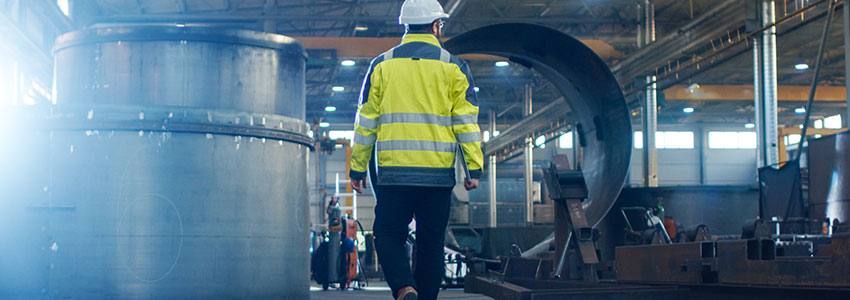How Circular Economy Imperatives Affect Facilities Management and Maintenance
The circular economy is a vital consideration as building and facilities management move towards more sustainable practices. This is an important shared responsibility in the face of an evolving global climate crisis – but it also holds important benefits around reduced costs and marketability for businesses.
WHAT IS THE CIRCULAR ECONOMY?
The circular economy looks at the reuse and regeneration of products and assets. This involves changes around how things are made, how they are consumed, and how and when they are disposed of. This is usually done with environmental concerns in mind, phasing out waste as much as possible. It aims to maximise value and reduce impact – a practice that affects sustainable development.
In the building and facilities context, the circular economy involves the repair, reuse, and remanufacture of goods to preserve resources and maximise value – which are broken down for recycling at the end of their life.
WHY THE CIRCULAR ECONOMY?
The drivers for the move towards circular economy values are:
- Changing legislation and environmental compliance to be more sustainable and environmentally focused.
- Reduced operational cost and risk. The Ellen MacArthur Foundation has stated that the circular economy could achieve between $520 and 603 billion per annum in Europe – and this amount does not include savings on materials. Circular economy and sustainable practices are also more resilient and less affected by external factors.
- Competitive edge and improved marketable appeal of environmental evolution.
THE ROLE OF FACILITIES MANAGERS IN THE MOVE TOWARDS A CIRCULAR ECONOMY
In business and industry, circular economy principles are taking hold in many different areas of the built environment, with a whole-life view on assets. This includes:
- Manufacture
- Waste and resources management
- Food and catering
- Utilities
- Equipment procurement
- Building and estate management
These facets are clearly in the realm of responsibility of facilities managers, who have the power to drive transformation in these areas. Reduced wastefulness is also a high priority for managers. Additionally, the essence of the circular economy is to extend the useful life of products and materials. Effective facilities maintenance plays a clear role in this – and longevity is one of the benefits of well-maintained equipment and facilities.
Circular Economy By Design
According to the Great Recovery Project, 80% of waste of a product is determined by design. This means design must be durable, easy to dismantle, and made from recyclable materials wherever possible to fit the practicalities of circular economy theories. Specialist facilities management teams are best-placed to provide insights on and professionally install eco designs for new builds and refurbishments. They also have the BIM tools to devise context-specific design and maintenance solutions.
Optimised Lighting
By designing and installing optimised lighting and smart lighting infrastructure, facilities maintenance experts take lighting from traditional economies into circular economies.
Reduced Energy Consumption
The move to renewable energy sources is a classic example of the circular economy in motion. Reduced emissions, consumption, and waste are environmental objectives that have cost and operational effects too. However, this only addresses a portion of the problem. The carbon in the products we use every day also needs consideration, which means how products are made and how they are consumed needs to be rethought.
Maintenance
Extending the lifetime of equipment and assets is achieved primarily through maintenance – and is the main aim of circular economy aims. The condition and reliability of equipment in a ‘repair rather than replace’ culture is best achieved by professional monitoring and maintenance of an FM team.
PARTNER WITH FACILITIES MAINTENANCE SPECIALISTS AROUND CIRCULAR ECONOMY TRANSFORMATION
There is no one-size-fits all approach when it comes to the circular economy in the workplace. Partner with Voltix Services for tailormade facilities maintenance strategies for sustainability and the environment. Contact us today to discuss your needs.

